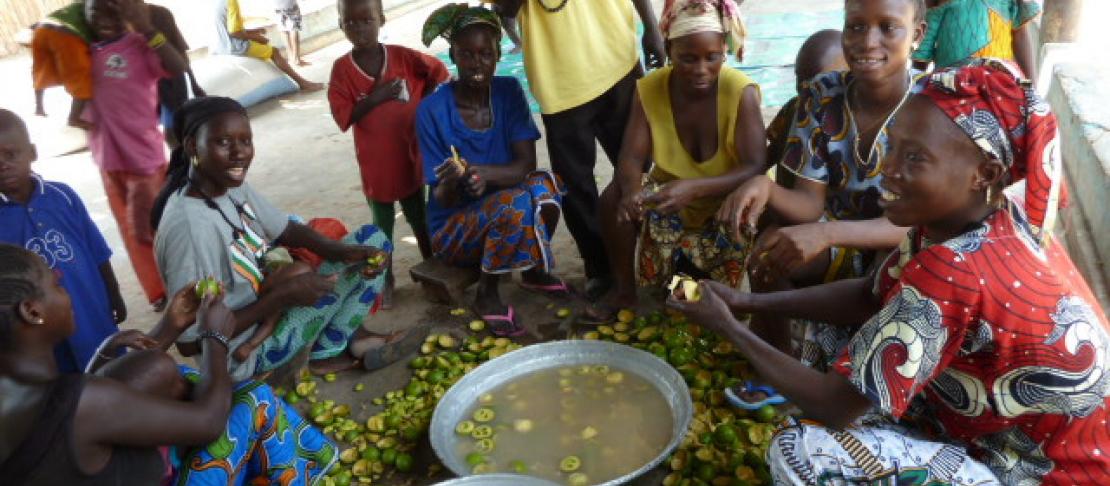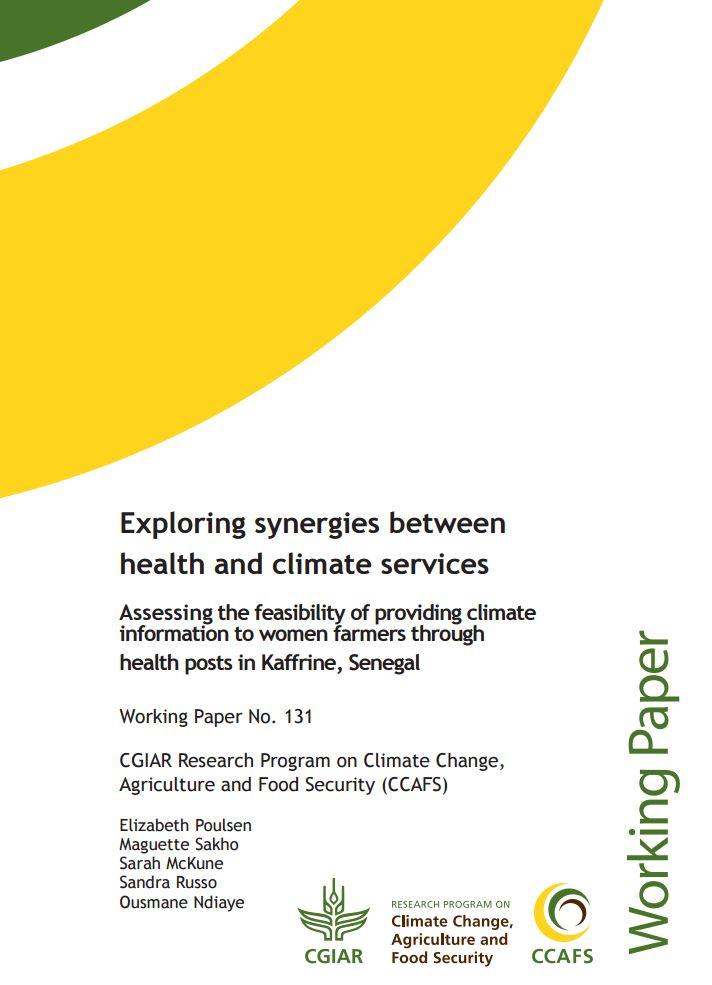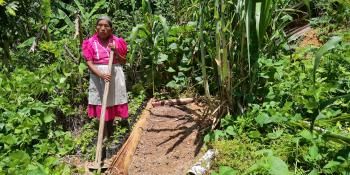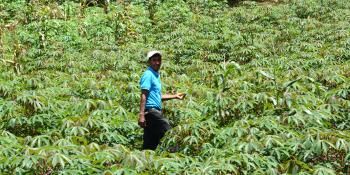Rural health posts may expand opportunities for women farmers to deal with climate risk

Among the strategies being implemented to bring information and services to women and underrepresented groups, existing health care outposts provide a unique advantage.
If asked to brainstorm ideas that would help female rural farmers in sub-Saharan Africa to deal with the challenges of climate change, enlisting the support of rural health posts may not be the first solution that comes to mind. However, an innovative study conducted by the University of Florida in partnership with the CGIAR Research Program on Climate Change, Agriculture and Food Security (CCAFS) in the summer of 2015 reveals that in the Kaffrine region of Senegal, a partnership between the health system and the national meteorological agency may, in fact, provide a promising opportunity to reaching female farmers in the region.
Overlapping interests in health and agriculture sectors
Health posts are a unit of rural care in the Senegalese health system, employing four to five medical staff (although no medical doctor) and serving a community of approximately 11,000 people. Although not equipped to deliver agricultural advice, health post staff that participated in CCAFS research expressed great interest in having direct access to short- and long-term climate forecasts, and in distributing this information throughout their regions of operation.
One health post director explained how this information could benefit her:
“Weather affects health. When there are floods, there is an increased risk of diarrheal disease. Hot weather brings risk of dehydration, and during cold weather, we see an increase in the number of patients with respiratory problems.”
Since health posts in the region provide preventative guidance regarding these and other health issues, climate forecasts could help increase the accuracy of such messaging. For example, many research participants talked about health posts’ annual malaria campaigns, which are the largest community-based health campaigns of the year and take place just before the rainy season. If the posts had more information about the onset date of the rainy season and how intense the season might be, they could then time their campaigns more accurately and relay this important information to residents in their region.
New opportunities for bridging the gender gap
In addition to providing critical public health leadership, health post staff are experts at reaching women and other vulnerable populations. These groups face disadvantages such as low literacy, low mobility, and low access to technology; they are also less likely to speak French, which is the language of many written and verbal communications in Senegal. Health post staff described a variety of communication methods that they regularly use to bypass these barriers.
Because health posts cater to the needs of the whole community, there is already a precedent for women to visit and participate in campaigns and services. When the health posts begin to provide climate and forecast information, women have potential access to this information, especially if there is a campaign specifically geared toward reaching female farmers. Additionally, health post staff often communicate with a community representative, which in some areas is a well-respected woman known as a “badienou gokh,” and who serves as an unofficial leader in disseminating information. With these existing inroads to the female contingent, health posts can potentially utilize these connections to provide climate services to women farmers.
They have the information, now what?
The study of how health posts could be used to deliver climate is part of a larger effort to strengthen capacity to use climate information to manage risk. When health posts start to relay weather and climate information, the next step is to advise farmers on how to act upon this information. CCAFS and the Senegalese Meteorological Agency (ANACIM) have been working in Kaffrine since 2011, collaborating with local organizations to provide trainings on how to interpret and use downscaled climate advisories. CCAFS and partners also use communication channels such as radio, community meetings, and theater to bring the information to people at all literacy levels.
Read more:
- One size does not fit all: considering gender, equity and power in climate information services
- Putting climate forecasts into farmers’ hands
- Is gender being considered within climate services?
- Climate change and social networks in Senegal’s peanut basin
- Bridging climate forecasts with farmer realities: The story of Seck and Ousmane
- Video: Putting climate information into farmers’ hands
Elizabeth Poulsen is a Researcher and International Development Professional from the University of Florida (UF).
Mea Halperin is a Communications Consultant with CCAFS.



